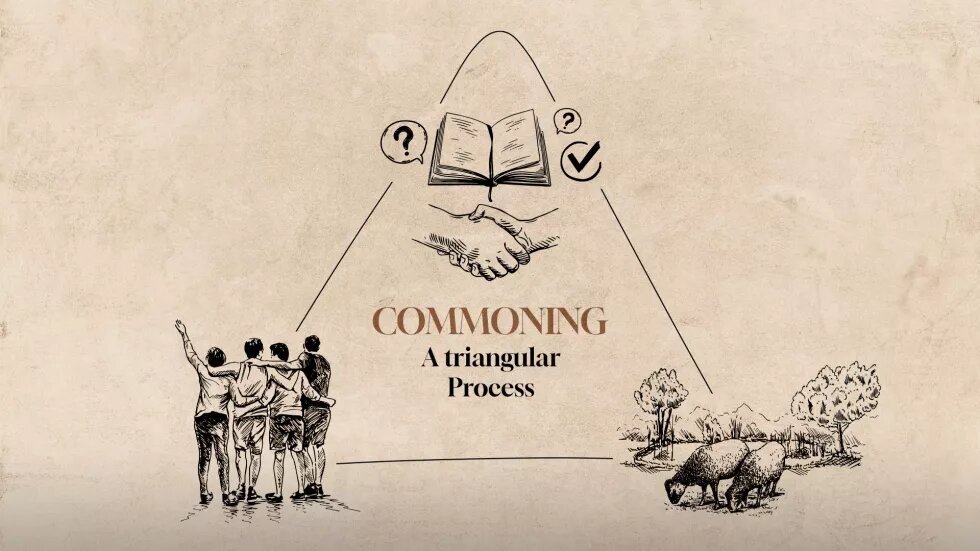A resource does not equal a commons. It is only when a community engages in processes of commoning, that a commons emerges.

Communities create rules and negotiate fair and practical ways of allocating benefits, and devising rules to protect their common wealth. These processes of commoning are based on shared purpose and trust within a community.
The fight for the commons is the fight against enclosures. Enclosure is the act of fencing land, forest, or pasture to convert shared wealth that commoners have depended upon for meeting their needs into private property. Historically, enclosures were political initiatives by feudal lords and, later, by early capitalists and parliaments. Today enclosures are generally driven by investors and corporations, often in collusion with the nation-state, to privatize and commodify all sorts of shared wealth — land, water, digital information, creative works, genetic knowledge — dispossessing Commoners in the process.
In short:
“Commons governance” is a triangular process. It contains the resource (or care-wealth), the user (commoners) and the system of rules (commonly agreed consensual regulations including graduated sanctions for breaching rules) that are put in place to manage this resource for the benefit of all.
Silke Helfrich breaks down commoning in this very helpful video produced by Leuphana Digital School:
Silke Helfrich 1/6 - Terminology of Commons
Silke Helfrich 1/6 - Terminology of Commons - Leuphana Digital School - Leuphana Digital School
 Watch on YouTube
Watch on YouTube